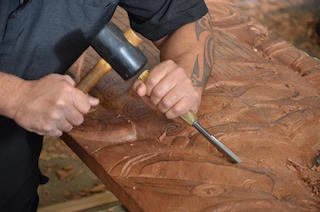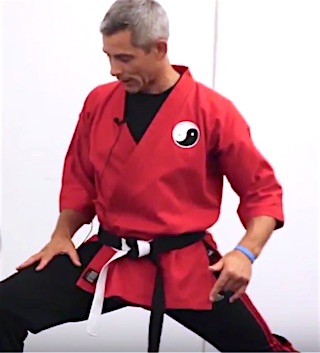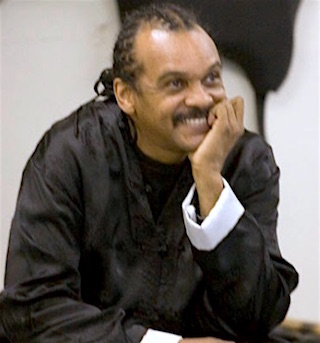Welcome to Episode #55 of the Fight for a Happy Life podcast, “I Want You to Fail!”
If you want to learn martial arts, then from the bottom of my heart—I want you to fail!
Like it or not, failing is the only way to become a master. Unfortunately, our ego usually doesn’t agree!
In this episode, let’s talk about accepting failure as part of our training… and see if we can get better at making mistakes!
To LISTEN to, “I Want You to Fail!,” you can either:
- Play the show below. Or download to your device.
- Subscribe on iTunes or Stitcher or Google Podcasts or Spotify.

Podcast: Play in new window | Download | Embed
Subscribe to Podcast: RSS
To READ along, or if the player won’t play, you’ll find a full transcript down below.
If you’d like to support the show, share this link with a friend or leave a quick review over on iTunes. Thank you!
Oh—and don’t forget to sign up for free email updates so you can get new shows sent to your inbox the minute they’re released.
Thanks for listening! Keep fighting for a happy life! 🙂
I Want You to Fail
TRANSCRIPT
Today on Episode #55 of Fight for a Happy Life, I admit it—I want you to fail.
Hello, my friend! Welcome to Fight for a Happy Life, the show that believes a little martial arts makes life a whole lot better. Ando here at it is the end of 2017. A new year is about to begin.
Now, I usually don’t mention the date when I record this show because I never know when you might be listening to it. I try to keep these things timeless. But I’m going to break that rule today because I consider every day as New Year’s Day. You can start a new cycle of 365 days any day you want to, so why wait until January 1st?
I feel the same about birthdays. Over the age of 10, who the hell cares what day you were born? For me, every time you go to sleep, you don’t know if you’re going to wake up or not. If you do, and you did today I guess, then that’s like being born again, right?
So, a new year, a new month, a new day… forget all that. Celebrate this moment. Make a fresh start right now.
I should probably end the show right there, shouldn’t I? That’s a good message. But alas, I love talking too much.
So, let’s talk about failure. Because no matter when you decide to set a new goal or chase after your dream, you, my friend, are going to fail. But that doesn’t mean you should feel like a failure. Quite the opposite. I’ll tell you what I mean right now.
[02:03] The best part about shooting videos and recording podcasts is receiving comments and questions from friendly people all over the world. Well, most of them are friendly. People ask me—
What style should I study? What exercises should I do? How many days a week should I train?
How long should I stretch? What food should I eat? Is it okay to cross-train between two different styles?
Should I focus more on sparring or forms? Should I start my own club? Should I find a new teacher?
I could keep going all day, but you get the point—I get a lot of questions. But here’s the funny thing—I give them all the same answer.
The answer to every question is, “I don’t know.”
Look, I’d love to be able to give everybody a simple solution to their problem, a specific formula for success, but I can’t! How could I? The truth is we’re all on our own journeys. You have to figure out what works for you on your own.
The best answer I can offer anybody is to simply try. Experiment. Then pay attention to those results. Measure. Analyze. Reflect. Adjust. Then try again.
That’s it! That’s the answer to every question and every problem. It all depends on you.
I should probably end the show right there, shouldn’t I? That’s another good message! But alas…
Here’s a fact—the greatest asset you have as a martial artist, and I believe as a human being, is experience. You tried something and you either succeeded or failed. You’ve done it. You know how it works. You know how it feels. That is the gold, my friend.
Experience is your treasure.
I’ll bet you agree with that, don’t you? So, if that’s true, and we agree it’s true, why is it so difficult to go off and gain experience? Why do we stick to routines and create traditions? What are we afraid of?
We see this fear of trying new moves or new styles in the martial arts constantly. More than any other activity, I think the martial arts lead students to theorizing instead of trying.
I mean, I’ll bet you don’t find as much debate and confusion, anxiety and insecurity in the world of woodworking. I’ll bet you won’t find a group of master carpenters standing around arguing about whether a hammer works or not. They probably aren’t bragging about who has the sharpest saw.

The reason that carpenters are, perhaps, a more clear-headed group, is simple—they have real experience. They have done the work. They may prefer different techniques, they have different approaches, but at the end of the day, they can each build something, as opposed to just talk about how they could build something… if they wanted to.
There is no leap of faith in carpentry. You can either build something or you can’t.
[05:18] But martial artists have a trickier path to attaining confidence and credibility. We can’t go around beating people up to prove ourselves.
Sure, we’ve created combat sports to test certain skills, but those are still just sports. How do you test self-defense? Most of us will never be in a real-life battle for survival.
So, what do we do? We listen to people who have been in that situation. Or to someone who trained with someone who was in that situation… even if it was a hundred years ago. Even if it’s just according to legend. You see the problem?
The problem with martial arts is that there is no safe, easy way to gain experience. Not the kind of experience that would give us the same confidence and credibility that you might find in a carpenter.
We try to work around that problem by designing drills and exercises that simulate a real-life battle for survival. The problem with these drills, aside from not being completely real, is that when you pit one person against another you introduce the risk of failure. The risk of losing. The risk of not looking cool.
Worse, the penalty for failure in the martial arts can be painful. You might get injured. If you try new footwork, you might get punched in the face. You try a new choke escape, you might have to tap out.
Especially as you go higher in the ranks in the martial arts, the risk of failure becomes harder to manage because you’re expected to do things right. As a senior student or a teacher, you feel the pressure to be perfect, to be a role model in class. That’s trouble.
If you allow everyone to believe you’re perfect, you will now fear failure, which means you won’t try anything new, which means you won’t gain any new experiences, which means you’ll stop learning, which means you’ll suck.
Now, let’s be honest, it’s not just teachers or senior students who put that pressure on themselves… we all do!
Even as a beginner, you don’t want to make mistakes. You don’t want everyone else in class thinking you’re stupid. We all want to win. Maybe some more than others, but you know what I mean. No one shows up to class wanting to lose… but if you’re smart, you should.
I mean, how do you become a black belt in the first place? You start off as a white belt. You know nothing. You can do nothing.
Only a whacko student would expect to be perfect as a white belt. Only a whacko teacher would expect you to be perfect as a white belt.
For me, the white belt represents freedom. The freedom to try and the freedom to fail. Failing is your job. If you’re not failing, then you’re a terrible student. Sure, you may put pressure on yourself to do things right as fast as possible, but that’s your choice. No one else expects anything from you.
As a white belt, everything you do is a new experience, which means you should be learning more than anyone else in the room. That should be thrilling, not intimidating.
So, get in there. Believe me, there’s nothing more frustrating from a teacher’s point of view, than a student who just stands there and won’t try. I can’t work with people like that.
It’s not a personal issue, it’s a practical issue. I know that whatever it is you want to learn—and I want to teach you—can never be attained by just standing there or participating half-heartedly.
You must commit yourself fully in order to gain the full experience. You must fail and fall on your face.
Once you feel comfortable doing that, the next challenge is to hold on to that sense of white belt freedom no matter what rank you earn or title you’re given.

That’s why, if you’ve seen my recent videos, I made myself a special black belt. It’s half-white and half-black. Yin and yang. I call it my Balance Belt.
The black half reminds me that I’ve worked hard to gain some skills. The white half reminds me that there’s always more to learn.
The idea is to be proud and humble at the same time. To trust my past training and to be open to new experiences.
I want to live and die as both an expert and a beginner simultaneously.
Unfortunately, many teachers and students surrender their freedom and fearlessness. They fear wearing a white belt again, either literally or figuratively. They make the mistake of avoiding mistakes.
Too bad. Because when that happens, they cease being a martial arts student.
[10:41] So, my advice is to fail. Fail as much as you can. Fail as soon as you can. When you get a new idea, run experiments immediately.
I want you to be as proud of your failures as you are of your successes, because it’s in managing your failures that you demonstrate your true character.
If you want to show people that you’re brave, let them see that you’re brave enough to fail. If you want people to think you’re open-minded, let them see you approach your practice from different perspectives. If you want people to see that you’re tough, let them see you failing over and over again until you get something right.
Whether you like it or not, if you’re a senior student or a teacher, you’re a role model. Please realize that when you’re comfortable making mistakes you’re allowing everyone around you to make mistakes.
When you laugh at yourself, you allow everyone around you to laugh at themselves.
When I got started in the martial arts, I signed up for two traditional styles: Tae Kwon Do and Aikido. It sounds crazy to me now, but I never once sparred with the master in either of those systems. I only saw their skills when they demonstrated techniques in controlled settings.
Meaning, I never saw the Tae Kwon Do master make a mistake! I never saw the Aikido master make a mistake! Accordingly, they became gods. Living legends. They were the untouchables.
What a pity. When you put teachers on pedestals, or when they put themselves up there, students believe that the masters never make mistakes, which is ridiculous! You can only become a master by making mistakes!
No one is born a master. So, why would any teacher allow their students to believe that they are superhuman? I can’t think of one good reason.
That all changed when I discovered Kung Fu. Of course, it’s not the style that’s important here, it was the teacher. In this case, Sifu André Salvage. [www.andresalvage.com]

In my very first class, Sifu André worked out with me. I was shocked. I walked in and the guy whose name was on the door, the master, said, “Do you want to work out?”
I didn’t even know what he meant. I certainly didn’t think I’d be touching him, let alone end up rolling around on the ground with him. It blew my mind.
The culture of the school was very different from my previous experiences, and it all trickled down from the teacher. This teacher had no issue with making a mistake or trying something new. He would openly say, “That didn’t work.”
Wow. What a relief! But to be clear, he was also a killer. He wasn’t just a fool stumbling around trying to learn kung fu from a book. The fact is that most of his skills were incredible. Incredible enough that I signed up and paid him money.
Everybody in the school knew he was a killer, but here’s the important point—we knew he was killer not because he was the teacher or called himself a master, but because we had all worked out with him.
We could all feel his skill level. And how did he acquire those skills? By doing exactly what he did to me. By grabbing the new guy and saying, “Do you want to work out?” His willingness to experiment and fail right in front of me is what made him a master not just of Kung Fu, but of life.
Here was a demonstration of true confidence. Here was true fearlessness. Here was freedom… and joy.
[14:53] This was a big deal to me, so I’m going to say it again. Sifu André was a great teacher in my eyes compared to other teachers not just because he had information to share, but because he showed me exactly how to make that information mine. He was offering more than just an art, he was offering the technology to learn the art.
In Taekwondo and Aikido, I felt like a loser when I made mistakes. In Kung Fu, I felt like a winner. A warrior. I knew that each failure was making me better, so why worry?
Obviously, the more comfortable I felt making mistakes on the mats, the more comfortable I felt making mistakes in my life off the mats. I’m not going to lie, it’s not always easy. My ego is still on the prowl like a tiger… stalking my every move… ready to pounce and attack my confidence. Sometimes I have to remind myself that it’s okay to look like a damned fool when I’m trying to do a handstand or fix the toilet, but in most cases, I find the freedom and joy of being a white belt again.
André turned the pain of failure into something to be proud of, not something to hide or be ashamed of. For me, there is no greater gift you can give a student or yourself.
Of course, I’m not the only one preaching about the importance of failing. You can click over to Google and read inspiring quotes about failure from famous people all day long. But right now, let me share a phrase I first heard from my longtime Kung Fu teacher, Sifu Matt Ember.
You may have seen Sifu Matt in a couple of my videos. If not, I’ll put the links in the show notes.
Self-Defense Against a Bigger Opponent with Sifu Matt Ember
How to Learn Martial Arts Faster with Sifu Matt Ember
Well, Sifu Matt has told us for years to “invest in losing.”
Invest in losing. How do you do that? You do it by not trying to win all the time. You do it by trying something new not with the goal of being good at it, but with the goal of simply experiencing it.
Trying to be good or to win only creates fear and stress. It clouds the experience. Instead, when you try something new, expect to fail. Welcome the fall. Invite the hit.
If you can put your ego aside and accept that your first attempts will be failures, you’ll eliminate all of the fear and stress. You’ll be left with your senses wide open to learn what they need to learn. If you can do that, failing is not losing… failing is winning.

Oh, by the way. In case it’s not clear, Sifu Matt was a student of Sifu André. And if you’ve seen the videos with Sifu Matt, you’ll notice right away that he’s another example of a teacher who can laugh at himself. Which proves to me that teachers don’t just hand down information in a martial arts school, they also hand down a culture.
If you’re lucky, you’ll find a teacher who welcomes you to make mistakes. These are the kind of role models we need in the martial arts. Heck, we need them everywhere!
[18:14] So, if you are a senior student or teacher, my hope is that you allow your students to see you making mistakes. Let them see you failing and laughing about it.
But don’t be a clown. You also have to let them see how your experience has made you better. Let them see how doing things poorly 1,000 times yesterday has led you to doing things incredibly well today.
If you’re a student, I’d like you to think about what kind of a teacher and school that you belong to. What is the culture? What’s the vibe?
Some schools are very open about experimenting and accepting of mistakes. Other schools are more rigid and less patient. You can feel the expectation to be perfect in the air… and it stresses you out!
It’s also possible, as was the case in my Tae Kwon Do school, that you have more than one instructor. Maybe one slaps you on the head and makes you feel stupid, while another slaps you on the back and makes you feel proud. There’s a time and place for both, I suppose.
Whatever your situation may be, give yourself permission to make mistakes.
This is crucial. If your teacher is already okay with that, then no problem. Get hit. Tap out. Have fun.
If you’re practicing in a stricter environment where you’re judged harshly for making mistakes, listen to me—make mistakes anyway! Stressing out will not help you learn.
When you hold back in class out of fear of failure, you’re holding back your development. Trust me on this.
Let others laugh at you. Let them think you suck. Let them point and shake their heads. Anyone who does that is a coward. You don’t want to be like them. They are afraid of making mistakes. They are afraid of learning something new.
Your goal is not to appear like a winner today, your goal is to be a master tomorrow.
You’re not going to find many masters leaning on the wall with their arms crossed, snickering at the white belts because they’re doing things incorrectly.
Sure, they may be pretty good. They may have invested enough time and energy in their younger years to attain a higher level of skill than you possess today, but they’re also revealing that they’ve stopped learning. Which means you’ll not only catch up to them, you’ll surpass them.
Now, I’m not telling you to quit your style or leave your school if you’re feeling stressed, I’m simply reminding you that your teacher and your school are there to serve you. You are not there to serve them.
You did not sign up for classes with the goals of improving your teacher’s life or a school’s reputation. They are there to help you fulfill your goal of improving yourself.
So, if you believe that failing is the secret to learning, then get to it. Do the work. Take the hits. Acquire as many experiences as you can.
Look forward to the day when you have a student who asks you a question about a technique and you can answer, “Yes, I’ve tried that. Here’s what I learned.” Or, “Hmm. I’ve never tried that. Let’s figure it out.”
The alternatives to those two answers suck. If you say, “I don’t know. Just do it the way I showed you,” then you’re a terrible teacher. If you say, “That won’t work,” even though you’ve never tried it, then please—stop teaching!
Do your students a favor and go find another job. Become a baker. Make pie. The world can always use more pie.
[22:08] So, that’s my challenge to you today—go fail. Or at least don’t be afraid of failing. I’m not just talking about in the martial arts, of course, I mean in everything you do.
Remember—if you try to be perfect at everything, you will perfect nothing. If you think you can fool everybody into thinking that you’re perfect, that you don’t make mistakes, well, then you’re making the biggest mistake of all.
Don’t stress yourself out like that. Instead, make peace with failure. Invest in it. Expect mistakes. Enjoy them. Share them.
And if the fools laugh at you, I want you to laugh with them. Laugh because you know that failing in the beginning means winning in the end.
How’s that for an inspiring message? I want you to get out there and be the biggest failure you can be!
If you enjoyed today’s show, I hope you’ll share it with a friend. If you’d like a transcript of the show, you can find it on FightforaHappyLife.com.
Until next time, smiles up, my friend. Let that smile be your shield and your sword. Keep fighting for a happy life.

Nice – a good read ;). I’ve tried a few different classes/styles and many different teachers in my time and met many who were awesome and I really enjoyed their style of class etc and a few not so great for me – others obviously found them helpful or they wouldn’t have continued… Was the best thing I did though – in my club we have many teachers and many classes on different days at different venues so there are lots of options and if one person doesn’t work for you then you can try another time/teacher. In the beginning it is important to know that you do have options and just because your first class was not a great experience doesn’t mean the whole club is not fun you just need to “test the waters” in different classes if you fancy the style that is. – I do really like the “failing in the beginning means winning in the end” 😉
Hi Sue!
You’re so lucky (as was I) to have been exposed to multiple teachers and styles in one club. I can’t imagine how many people had a bad experience with just one style or teacher, then gave up martial arts entirely. What a shame!
Here’s to a new year full of failures… and victories! 🙂
Thank you, I always get a lot out of your videos and pod cast. This one really hit home as I was a carpenter for 35 years. Doesn’t mater how you build something as long as it gets built in the end.
The guy I first learned carpentry from always said “If we never made mistakes, we’d never learn anything new.”
I like instructors that have a good time teaching rather than just being serious all the time.We are learning a skill that we hope to never need.
And have had Instructors that have said that doesn’t work, and it is something that I had learned at another studio (cross over kicks for 1 example).
Happy New Year Sir..
Hi Allen! A carpenter for 35 years… wow! I won’t ask if you have all your fingers. 🙂
It sounds like you have kept an open mind along your journey, which is not as common as it should be! Continue with your wise ways, sir! Happy new year!
If you aren’t failing, you aren’t trying hard enough.
Good ideas! : )
Thanks for saying hello, Shinwoo! Now, go fail! 🙂
I have heard “invest in loss” from a few people over the years. I also think you can read it in the Tao of Jeet Kune Do too. When I first read that form Bruce Lee, about 30 years ago, it changed my outlook on marital arts. That is when I realized one of the best way to learn in Martial arts was to fail.
Excellent, Tim! Then let’s both keep falling on our faces! 🙂
A good attitude in my opinion. After training for 22 years (plus) and teaching for at least five, I wear a white belt – when I wear a belt at all.
I always let my students try things they want to try, too. They don’t have my body so they don’t often need precisely the same technique I need.
And a class without laughter is not the place to be for me.
Awesome. Your students are lucky to have you sir! Keep up the good work!